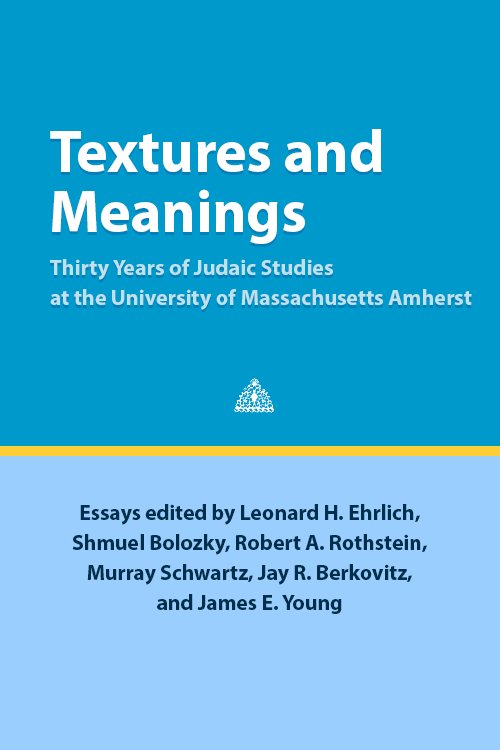The Problem of Paganism and its Solution in the Theology of David Einhorn
Philip Cohen
This chapter is part of: Leonard H. Ehrlich et al. 2004. Textures and Meanings: Thirty Years of Judaic Studies at the University of Massachusetts Amherst
Download Chapter| Description |
|---|
| Philip Cohen concludes this section with an essay on the theology of David Einhorn (1809-1879), one of the developers of the Reform Movement. Einhorn’s thought is directed against what he called “paganism” in European philosophy, and which he saw as taking two forms, “idealism” and “pantheism.” “Idealism” is a monotheism that places God totally out of the world, while “pantheism” locates God totally in the world. For Einhorn, a synthesis was required, “where real and ideal meet.” He sought this synthesis in a law of “centralization”, where opposites are “mutually relative” and neither overwhelms the other. “Centralization” is “the mutuality which exists between each of the contrasting dyads.” Einhorn’s “centralization” is derived from Schelling’s “identity principle,” in which “all polar opposites find their unity in the absolute, in what Schelling eventually calls God.” Einhorn finds in “centralization” the unification and balance that is the essence of Mosaism. This is his version of Maimonides’ “Golden Mean,” the moral dimension of which differentiates Judaism from its philosophical sources. |
-
Details
Published Published By Aug. 1, 2004 University of Massachusetts Amherst Libraries Citation Cohen P. 2004. The Problem of Paganism and its Solution in the Theology of David Einhorn. In Leonard H. Ehrlich et al. 2004. Textures and Meanings: Thirty Years of Judaic Studies at the University of Massachusetts Amherst
